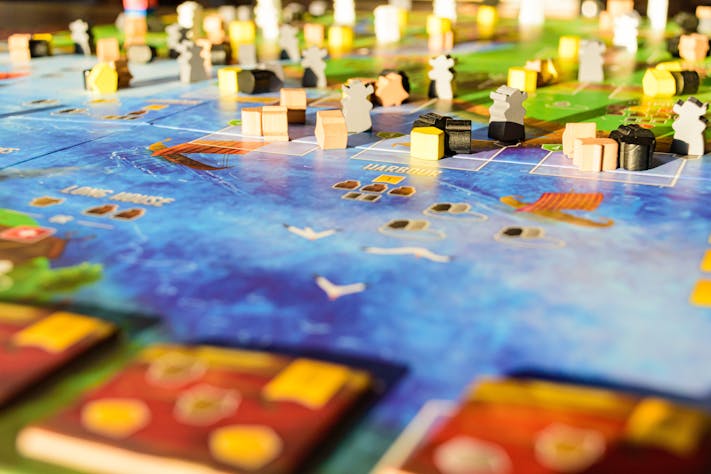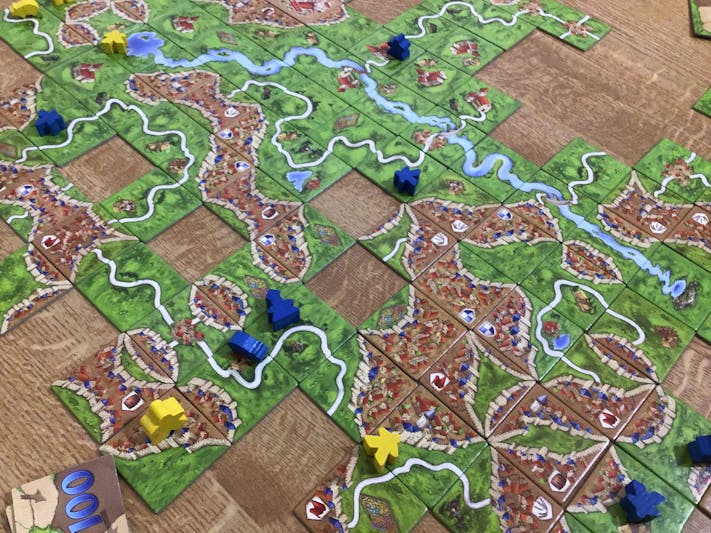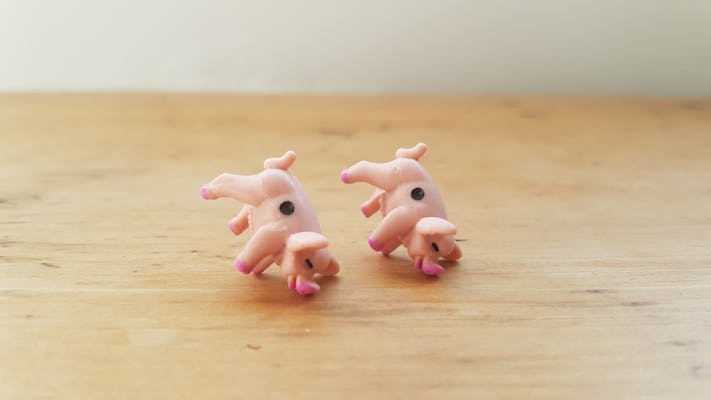
Munchkin
Grab yourself a deck of Steve Jackson’s game and you’ll be sucked into a world of dungeons, treasure and outlandish beasties. Coursing with cheeky humour, this roleplaying card game sees players enter a new dungeon room each round. Behind the door they will find either a monster to battle, a curse, or an item to collect. If they find themselves faced with a foe it’ll come down to the points they’ve collected and the items they've picked up along the way. Each victory leads to points and prizes; each defeat brings pain and misery. The first to ten points wins, and yes, the other players can help, or hinder, your path to triumph.
Mancala
One of the oldest games in existence, Mancala has lost none of its ability to engage. Two players line up a row of beads each and work to collect as many as possible. A surprising amount of strategy goes into the playing of the game, as you seek to dent your opponent’s collection whilst continuing to build yours. You can even make your own version of the game - not a bad craft activity if you've got kids to occupy at home.
Cytosis
In this game you are the busy inside a biological cell, bagging bits of cell machinery before your fellow cell-workers can get there, and making bio products. Having a scientific background doesn't give you an advantage, as it's a satisfying worker placement game whether or not you have an understanding of the underlying concepts, and a factsheet gives you more info if you're inspired. The player with most health points at the end wins (so it's topical!) Creators Genius Games have invented a whole host of sciency board games, but you might want to avoid Virulence...
Tier auf Tier
In this game you stack little wooden animals on the back of a crocodile. It's a short game, meant for kids, which has several things that really stand out. For a start the animals are lovely, if a bit abstract, and you get to pick which ones you want in your initial hand. Next, the game doesn't end when everything falls over - as it inevitably does - instead you keep some of the fallen and try again. Even the toddler was delighted with this and tried to balance her animals before chewing a sheep instead.

Carcassonne
I first discovered this game through an expert recommendation from the Thirsty Meeples team on a visit to the cafe. It’s the perfect ‘light strategy’ game (I say this with the authority of someone with a fairly short attention span…) - cleverly designed to combine skill with luck in a way that lets you indulge your competitive streak for 30 mins to an hour, depending on how many of the expansions you have. Players take it in turns to draw and place tiles that have features like farmland, roads, gardens and cities, and can make these part of their ‘territory’ by placing their colourful meeples on them. Each completed feature comes with points, and the winner is whoever has the most points once all the tiles have run out. As the tiles can be arranged in so many combinations, the game will inevitably take a variety of different shapes and forms, so that it's a distinct experience each time you play.
Settlers of Catan
The gateway between traditional games (think Monopoly, Cluedo and Risk) and more esoteric varieties, Settlers of Catan (aka Catan) is a game you’ve probably heard of, even if you’ve yet to play it. A resources management game; players build roads, cities and settlements by bartering items like wood, ore and brick. It can take a while to play (expect each game to last roughly an hour), and if you make mistakes at the start they will have a big impact going forward. But it’s an enjoyably competitive concept that can turn quickly. There are numerous expansions, too, and a modification so that it works well for two players - we’ve played multiple times and are yet to tire of it.
Turing Tumble
Part game, part puzzle, part computer, this is designed to teach how computers actually make decisions. Marbles drop from the reservoirs at the top, passed down by a series of levers which make a pleasing click-clack as it works. A story comic explains the concept, and presents a number of challenges in a child-friendly way. But it is pretty addictive for all ages, and gets harder at a fairly steady rate, with some surprisingly sophisticated decision-making that can be done just through a physical version of a logic gate. The online community has invented hundreds more challenges and will give hints or alternative solutions.

Pass the Pigs
It's surprising how much mayhem can be caused by a pair of pocket-sized plastic porkers. Players take turns to throw or roll the pigs, and how they land determines the number of points awarded - possible configurations include the Razorback, the Snouter, and the mythical, maximum-point Double Leaning Jowler. You can then either bank your points or continue rolling to up your total, though this could prove costly if you pig out (throw a nothing score) or inadvertently toss an oinker from the playing area (taking you back to zero). There's no limit on the number of players, and you can utilise any surface of your choosing - a bar stool being a particularly kamikaze option. It's ludicrously simple but strangely gripping - silly commentary and over-enthusiastic celebrations soon become hard to resist.
Organ Attack
Nick Seluk’s comic strip The Awkward Yeti has a huge cult following, as does his Heart and Brain spin-off. Out of this was born Organ Attack, a totally adorable, easy-to-play card game about taking out your opponent's organs. With Seluk’s charming art style and a set of rules that are easy to pick up, Organ Attack is a quick play that will have you laughing as you cause your friend to lose their heart because of love or their gallstones because of clinical malpractice.
Monopoly Deal
Like the original, but much quicker (a typical game lasts 20 mins, so much less likelihood of the whole family not talking to each other for a while - we need to stick together in these trying times!) and with the mechanics adjusted so that if someone has runaway success at the beginning, everyone else still has a chance to challenge them. Less accurate a reflection of capitalism, sure, but in my experience, this makes it more fun. Instead of driving everyone else into bankruptcy, the aim is to get 3 complete property sets, which you can do by drawing and placing cards, as well as swapping - or stealing - other people’s properties. It works okay with two people but is ideal for 3-4, possibly with drinks in hand.
Hive
The aim of hive is to protect the queen (bee) from being surrounded with the pleasing, chunky hexagonal tiles. Different insects and minibeasts mean the tiles move differently, and there is a lot of strategy in this neat, portable game. It's essentially an update of chess; a nifty and mobile modern version, as you can choose to lay new tiles or move the ones you have, making board and gameplay really fluid. Easily mastered by kids, it has a lot of depth, and different people develop styles of play, meaning someone who beats everyone might just be taken out by an unexpectedly maverick young opponent.
Many of the places you'd normally buy board games are currently closed as a result of coronavirus, but you can still purchase games online from any of Oxford's specialists, including Thirsty Meeples, Hoyle's, and Gameskeeper. Booksellers Blackwell's also have a games section on their online store.


